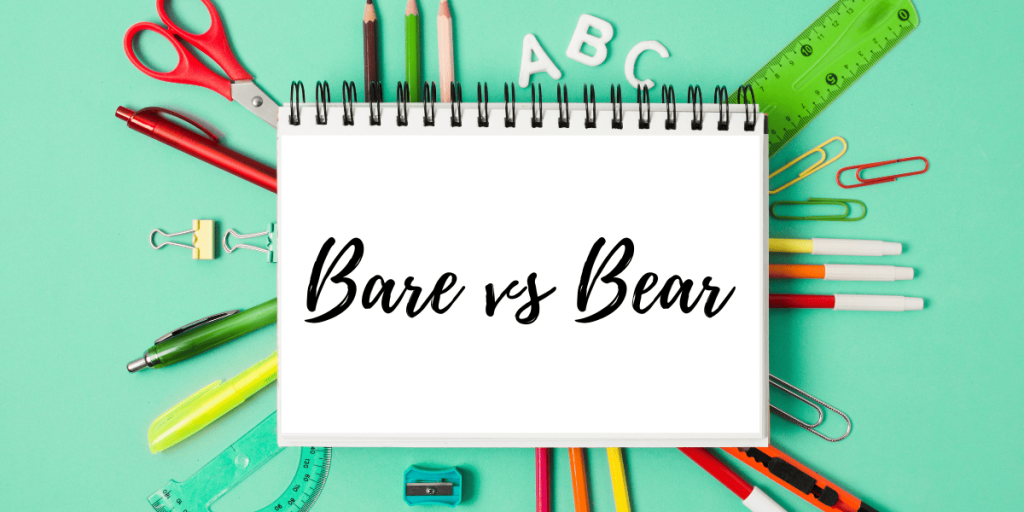Bare vs Bear: What’s the Difference and How to Use Them Correctly?

“Bare” and “bear” are English homophones—they sound the same but have very different meanings and spellings.
Confusing these words can lead to strange or unclear sentences. In this post, you'll learn the correct meanings, uses, examples, and easy tips to help you never mix up bare and bear again.
What Does “Bear” Mean?
Part of Speech: Noun / Verb
As a noun:
“Bear” refers to a large, heavy mammal with thick fur and sharp claws.
- “We saw a bear in the forest.”
As a verb:
“Bear” means to carry, support, endure, or give birth to.
- “She couldn’t bear the pain.”
- “This tree bears fruit in summer.”
- “She bore three children.”
What Does “Bare” Mean?
Part of Speech: Adjective / Verb
As an adjective:
“Bare” means uncovered, exposed, or minimal.
- “He walked on the bare floor.”
- “We packed only the bare essentials.”
As a verb:
“Bare” means to uncover or reveal.
- “He bared his soul in the letter.”
Bear vs Bare: Key Differences
| Feature | Bear | Bare |
|---|---|---|
| Part of speech | Noun / Verb | Adjective / Verb |
| Meaning | Animal / to carry or endure | Uncovered / minimal |
| Example | “She can't bear the pressure.” | “He ran with bare feet.” |
Common Expressions
With “Bear”:
- Bear with me – Be patient with me.
- Bear in mind – Remember or consider.
- Grin and bear it – Endure something unpleasant without complaining.
With “Bare”:
- Bare minimum – The least amount necessary.
- Bare your soul – Share personal feelings honestly.
- Bare essentials – Only the necessary items.
Easy Tricks to Remember the Difference
- Bear: Think of the animal bearing a heavy load → "to carry or endure".
- Bare: Rhymes with "air" → open, uncovered.
- Tip: “A bear can’t walk on bare feet.”
Quick Practice Exercise
Choose the correct word (bear or bare):
Bonus Resources
- Audio pronunciation: Bear vs Bare (Cambridge Dictionary)
- More Homophones in English → Explore our full category
Conclusion
Although bare and bear sound the same, their meanings are very different. One is about being uncovered, the other about an animal or enduring something.
Now that you know when and how to use them, you’ll never confuse them again!
📲 Found this helpful? Share it with other learners or leave a comment below!
Frequently Asked Questions (FAQs)
"Bear" can be a noun (an animal) or a verb meaning to carry, endure, or give birth. "Bare" is an adjective or verb meaning uncovered or minimal.
The correct expression is “bear with me,” meaning “please be patient with me.” “Bare with me” is incorrect.
Think of “bear” as the animal that bears (carries) something, and “bare” as rhyming with “air,” meaning open or uncovered.
Yes. As a verb, “bare” means to uncover or reveal something, as in “He bared his soul.”

Leave a Reply